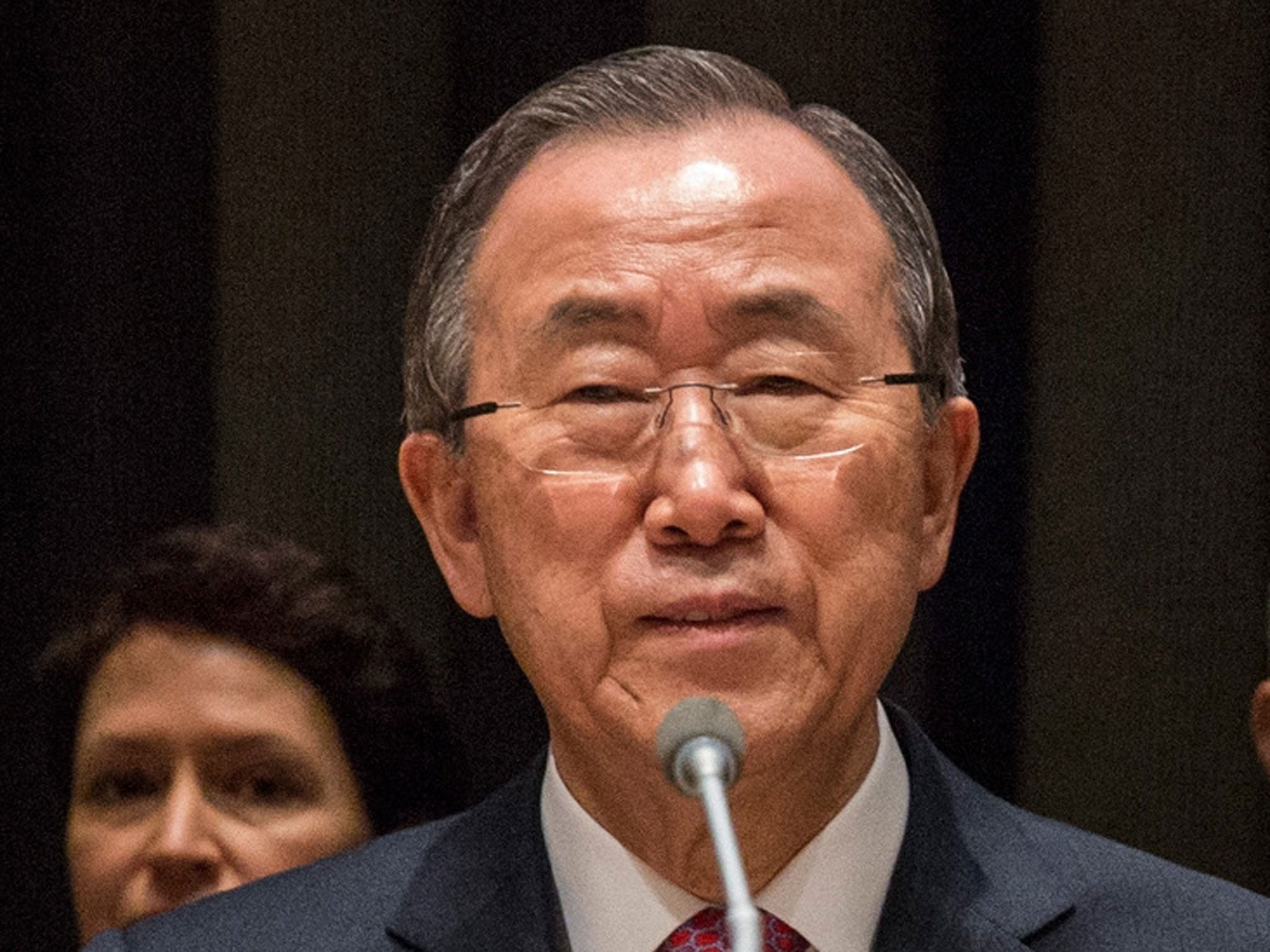Central African Republic: One mother’s deal with the enemy to save her baby
Fatimatu Yamsa was killed by a Christian mob in the Central African Republic. But a remarkable act of trust allowed her daughter to live

Fatimatu Yamsa will never know her baby’s fate, but in an instant she altered it forever.
They were fleeing violence, travelling in the back of a lorry packed with Muslims and Christians. The vehicle pulled into a checkpoint outside a ransacked mosque in this shattered town. Armed Christian vigilantes ordered all the Muslims to get out.
Yamsa stood up and handed her baby to a Christian woman who said she would pretend the girl was hers. She whispered to the woman: find my brother-in-law in the next town and give the infant to him. Then she got out with her three young sons and several other Muslims.
The baby’s name was Shamsia, and her ordeal had just begun.
Retracing her journey from that morning helps explain the complexities of the sectarian war engulfing the Central African Republic. It is a conflict so vicious that UN Secretary-General Ban Ki-moon has warned it could spiral into genocide and in effect partition the country. Last week, he called for a 12,000-strong UN peacekeeping force to bolster an existing contingent of French and African Union soldiers that have failed to halt the violence.
Shamsia, now eight months old, will one day learn how she was saved by a split-second decision by two women who refused to be influenced by the hatreds enveloping their country. She will also one day learn how her mother and her brothers died.
“They were all killed in front of the mosque,” said Serge Gougodou, a farmer who witnessed the massacre. The assailants hacked their prisoners to death with machetes and knives, he and other witnesses said. Then their corpses were dumped in a mass grave.
In recent weeks, the conflict has deepened. While hundreds of thousands of Christians remain displaced, and many continue to die, human rights groups are warning of ethnic cleansing as assaults against Muslims increase. Yet there are also people willing to take great risks to preserve the bonds that once unified their communities for as long as anyone can remember.
This report is based on visits to the places Shamsia passed through and interviews with her relatives and other people who helped her along her journey. Witnesses to the massacre of her family and the Christian vigilantes who now rule the countryside outside Bangui, the capital, were also interviewed.
Shamsia, whose name in Arabic roughly means “shining star”, would flee more violence with her relatives and find refuge in the unlikeliest of places. “It was a miracle she survived,” said Aalaji Yamsa, her uncle.
On the morning of 14 January, the Yamsa family decided to leave Bangui.
It had been four days since the nation’s first Muslim leader, Michel Djotodia, had resigned under pressure from regional leaders. The Muslim rebels, called Seleka, who had helped install him in a coup last March had committed atrocities against the country’s Christian majority. The violence fuelled the rise of Christian militias known as “anti-balaka”, or anti-machete, in the local Sango language.
With Djotodia gone, the Seleka began to withdraw, leaving Muslims unprotected. Then the Christian vigilantes escalated their attacks on Muslims.
The Yamsa family, like most Muslims, had lived peacefully with Christians. Since gaining independence in 1960 from France, their country has had many coups and few periods of stability, but rarely any religious violence. The two communities traded with each other, intermarried, lived in mixed areas.
Now, with tensions rising, the Yamsas packed up their belongings. Shamsia’s father, Bouba, and an older brother stayed behind to watch over their home. The rest of the family piled into the back of a lorry headed to neighbouring Cameroon.
Like many areas in the country, control of the hamlet of Boyali, 80 miles north-west of Bangui, had shifted several times in recent weeks.
By the time the lorry carrying the Yamsa family rolled into town, the Christian fighters were back in control. It was their time to seek revenge.
After the Yamsas and other Muslims got out of the lorry, the militias led the prisoners inside the mosque and ordered the lorry to leave. Inside the mosque, the fighters took their money and belongings, witnesses said, then chopped them to death outside on the road.
The dead included two of Shamsia’s brothers, ages five and three, and an 18-month-old relative, according to her uncle. But another brother escaped during the confusion and made his way to a nearby town where a relative lived.
After the killings, the anti-balaka fighters hauled the corpses to a nearby mango grove. “They brought the bodies over there, and dug a large hole,” said Sonya Infana, a neighbour, pointing at a mound. “They threw the bodies inside.”
The lorry carrying Shamsia then arrived in Bossembele, 20 miles north of Boyali. At a lorry stop in the town centre, the Christian woman asked for the baby’s uncle. Some people went to find him. When Aalaji Yamsa arrived and identified himself, the woman handed him the infant and told him what happened. “I didn’t even get her name,” said Yamsa, 46, shaking his head with regret.
© The Washington Post
Subscribe to Independent Premium to bookmark this article
Want to bookmark your favourite articles and stories to read or reference later? Start your Independent Premium subscription today.

Join our commenting forum
Join thought-provoking conversations, follow other Independent readers and see their replies